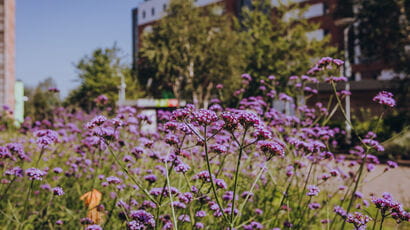Inclusive teaching and learning
Our aims
We want to ensure that our learning programmes are accessible and take into account the different needs of our students and staff in the development, delivery and assessment of the curriculum.

Ways we offer inclusive teaching and learning
Staff professional development
Staff with teaching responsibilities who are new to the University and don’t have a teaching qualification are required to undertake our Advance HE accredited Postgraduate Certificate in Academic Professional Practice (PGCAPP). This programme models good practice in inclusive teaching and also directly introduces staff to inclusive curriculum principles, practice and resources. Development opportunities for those new to teaching have inclusivity as a key component. Development activities for Programme and Module Leaders and professional recognition opportunities are underpinned by a commitment to inclusivity.
New programme design and programme review
The design of new academic programmes at UWE Bristol and the regular review of existing programmes are informed by the process and principles of our Enhancement Framework. All new and reviewed programmes must demonstrate how our ‘Inclusive and Global’ principle informs and is embedded within their curriculum design.
Digital accessibility
We have a number of policies in place to enable digital accessibility including the provision of materials in advance of learning sessions, the introduction of video captioning, recording of live lectures to allow students to review them afterwards in their own time, and Blackboard Ally – a system in our virtual learning environment which provides alternative formats for students and automatically checks files for accessibility issues.
Projects and resources
Inclusive Curriculum and Practice Toolkit
We recognise that for undergraduate students at UWE Bristol, and across the country, getting a 1st or 2:1 degree (good honours) varies with ethnicity.
We acknowledge that these gaps are the consequence of barriers to learning, rather than the innate abilities of diverse students. We have a moral, strategic, financial, statutory and reputational imperative to address these gaps.
The Inclusive Curriculum and Practice Toolkit (login required) offers practice guidance and inspiration to UWE Bristol staff to improve the learning experience and outcomes of Global Majority students. The Student Union Vice President Education and Global Majority student and staff partners have been involved in all aspects of design and creation of the toolkit. The Toolkit offers case studies, research, guidance and checklists on talking about race and racism, intercultural understanding and skills, and inclusive approaches to learning environments, group work, curricula, reading lists, assessment, and feedback, alongside guidance on using student EDI data.
Inclusive reading lists
Some students find themselves underrepresented in the curriculum - their histories and cultures ignored whilst white writing and history has been given a higher standing and academic privilege. We are keen to address this by promoting the value of inclusive reading lists which can:
- offer students differing points of view, with sources from a diverse set of cultural, historical, geographical or other contexts and authors
- seek to include more of the identities represented in the student body
- stretch the discipline towards expansion of thinking and combating colonial era assumptions or 'the canon'
- feature different media types and accessible formats
- cater to a range of learning styles.
To help with this, Library Services has created a reading list that supports and inspires academic staff to identify and recommend more inclusive resources.
ACE decolonisation project
The former Faculty of Arts Creative Industries and Education launched a Decolonising the Curriculum initiative linked to the Inclusive Curriculum and Practice Toolkit, with a conference and workshop. Programme Leaders and Associate Heads were tasked with creating a list of actions for the College and also to take away personal actions for making change in their courses and teams. The College has also created a central resource for staff to use in making their programmes and modules more inclusive. As a result, many programmes are revisiting their content and a number EDI focused research initiatives have been born.
Learning gain
Learning gain is defined as the 'distance travelled‘ by students during their time in higher education: the improvement in knowledge, skills, work-readiness and personal development that students can show at two points in time. The Office for Students feel that learning gain, although difficult to measure, is essential to understanding the value of higher education. Learning gain is also included within the Teaching Education Framework (TEF) under 'student outcomes and learning gain'.
Equality and diversity data
UWE Bristol is the largest provider of Higher Education in the South West of England.
Equality and diversity data
EDI events
The University hosts a range of equality and diversity events aimed at a variety of audiences.

Student services
Access to all the support and services that are available for current students.

Support for staff
Members of staff at UWE Bristol can log in to the intranet for staff-only information on equality, diversity and inclusivity.

Support for trans and non-binary students
Support and resources for trans and non-binary students.

Positive action at UWE Bristol
Learn how the University is taking positive action to improve the opportunities and experience of under-represented groups of staff and students.

Supporting Global Majority students
Support services and resources for students who identify as Global Majority.

University of Sanctuary
Learn how UWE Bristol supports sanctuary seekers through scholarships, partnerships, and inclusive initiatives.

Contact the EDI Team
Ways to contact the Equality, Diversity and Inclusivity (EDI) Team.
